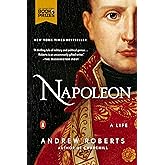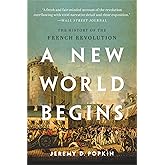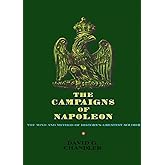
Amazon Prime Free Trial
FREE Delivery is available to Prime members. To join, select "Try Amazon Prime and start saving today with FREE Delivery" below the Add to Cart button and confirm your Prime free trial.
Amazon Prime members enjoy:- Cardmembers earn 5% Back at Amazon.com with a Prime Credit Card.
- Unlimited FREE Prime delivery
- Streaming of thousands of movies and TV shows with limited ads on Prime Video.
- A Kindle book to borrow for free each month - with no due dates
- Listen to over 2 million songs and hundreds of playlists
Important: Your credit card will NOT be charged when you start your free trial or if you cancel during the trial period. If you're happy with Amazon Prime, do nothing. At the end of the free trial, your membership will automatically upgrade to a monthly membership.
Buy new:
-20% $15.99$15.99
Ships from: Amazon.com Sold by: Amazon.com
Save with Used - Good
$11.99$11.99
Ships from: Amazon Sold by: gatecitybooks

Download the free Kindle app and start reading Kindle books instantly on your smartphone, tablet, or computer - no Kindle device required.
Read instantly on your browser with Kindle for Web.
Using your mobile phone camera - scan the code below and download the Kindle app.



 Audible sample
Audible sample Follow the author
OK
The First Total War: Napoleon's Europe and the Birth of Warfare as We Know It Paperback – Illustrated, January 16, 2008
Purchase options and add-ons
The twentieth century is usually seen as "the century of total war." But as the historian David Bell argues in this landmark work, the phenomenon actually began much earlier, in the era of muskets, cannons, and sailing ships—in the age of Napoleon.
In a sweeping, evocative narrative, Bell takes us from campaigns of "extermination" in the blood-soaked fields of western France to savage street fighting in ruined Spanish cities to central European battlefields where tens of thousands died in a single day. Between 1792 and 1815, Europe plunged into an abyss of destruction.
It was during this time, Bell argues, that our modern attitudes toward war were born. Ever since, the dream of perpetual peace and the nightmare of total war have been bound tightly together in the Western world—right down to the present day, in which the hopes for an “end to history” after the Cold War quickly gave way to renewed fears of full-scale slaughter.
With a historian’s keen insight and a journalist’s flair for detail, Bell exposes the surprising parallels between Napoleon’s day and our own—including the way that ambitious “wars of liberation,” such as the one in Iraq, can degenerate into a gruesome guerrilla conflict. The result is a book that is as timely and important as it is unforgettable.
“Thoughtful and original . . . Bell has mapped what is a virtually new field of inquiry: the culture of war.”—Steven L. Kaplan, Goldwin Smith Professor of European History, Cornell University
- Print length432 pages
- LanguageEnglish
- Publication dateJanuary 16, 2008
- Dimensions5.56 x 1.05 x 8.63 inches
- ISBN-100618919813
- ISBN-13978-0618919819
Book recommendations, author interviews, editors' picks, and more. Read it now
Frequently bought together

Customers who viewed this item also viewed
Editorial Reviews
Review
"Thoughtful and original . . . Bell has mapped what is a virtually new field of inquiry: the culture of war." --Steven L. Kaplan, Goldwin Smith Professor of European History, Cornell University
“A mesmerizing account that illuminates not just the Napoleonic wars but all of modern history… it reads like a novel." --Lynn Hunt, Eugen Weber Professor of Modern European History, UCLA
“A terrific book, fresh, original and compelling. . . a brilliant account of a fundamental historical transformation.” --Keith Michael Baker, Stanford University
“David Bell gives a gripping account of the transformation of European war. This is a bold and important book." --Natalie Zemon Davis, University of Toronto
“As wise at it is timely, and as rich in detail as it is grand in scope.” --David Armitage, Professor of History, Harvard University
“A page turner . . . Everyone who hates wars . . . should read these pages.” --Patrice Higonnet, Harvard University
"[David Bell] is one of the best prose stylists of his generation.” --Steven Englund, author of Napoleon, A Political Life
“From the gripping opening paragraphs to the very end, The First Total War is . . . an historical page-turner." --Dror Wahrman, Ruth N. Halls Professor of History, Indiana University —
About the Author
David A. Bell is the Andrew W. Mellon Professor in the Humanities at Johns Hopkins and a contributing editor for the New Republic. A graduate of Harvard College, he completed his Ph.D. at Princeton and taught for several years at Yale. Bell has written for the New York Times, Slate, and Time, and was featured on the History Channel’s program on the French Revolution.
Product details
- Publisher : Mariner Books; Reprint edition (January 16, 2008)
- Language : English
- Paperback : 432 pages
- ISBN-10 : 0618919813
- ISBN-13 : 978-0618919819
- Item Weight : 1.14 pounds
- Dimensions : 5.56 x 1.05 x 8.63 inches
- Best Sellers Rank: #107,707 in Books (See Top 100 in Books)
- #11 in Napoleonic War History (Books)
- #91 in French History (Books)
- #794 in World War II History (Books)
- Customer Reviews:
About the author

I'm an historian of Europe. I write principally about political culture, war, and nationalism, especially in connection to early modern France, the French Revolution, and the age of Napoleon Bonaparte. I've been teaching at Princeton University since 2010. Before that I was at Johns Hopkins. I write frequently for publications like The London Review of Books and The Nation, and for thirty years I was a regular contributor to The New Republic. My newest books are Napoleon: A Concise Biography, and Shadows of Revolution: Reflections on France, Past and Present.
Customer reviews
Customer Reviews, including Product Star Ratings help customers to learn more about the product and decide whether it is the right product for them.
To calculate the overall star rating and percentage breakdown by star, we don’t use a simple average. Instead, our system considers things like how recent a review is and if the reviewer bought the item on Amazon. It also analyzed reviews to verify trustworthiness.
Learn more how customers reviews work on AmazonCustomers say
Customers find the book interesting and readable. They describe it as a great introduction to topics like total war and a fascinating narrative charting the formation of a new war. Readers consider it a good value for money and well worth their time for those who enjoy military history.
AI-generated from the text of customer reviews
Customers find the book interesting and readable. They appreciate the intellectual approach and good overview of the period. The narrative charts the formation of a new war, providing insights into future democratic Wars. Readers also mention that the book includes short summaries of the major battles.
"...This riveting and fascinating narrative charted the formation of a new war culture but the story falls short...." Read more
"David Bell provides an interesting thesis through an intellectual look at the French Revolution and Napoleonic wars and their effect on European..." Read more
"...and the theory and practice of total war, this is a readable introduction to those topics." Read more
"...Both intellectually exciting and historically illuminating, it should appeal to the expert and the neophyte alike." Read more
Customers find the book provides good value for money. They say it's worth reading for those interested in military history.
"Not reviewing the excellent content, would just be duplicative...." Read more
"...Overall well worth the time for those who enjoy military history or the exciting things that intellectual history can unlock when looking at a topic." Read more
"Good book, had to read for a class and would highly recommend it. If you are interested in this period a must read" Read more
"The book is great, I needed this for a graduate class this semester. It even has some texts in it that I can use for teaching my 10 grade students!..." Read more
Top reviews from the United States
There was a problem filtering reviews right now. Please try again later.
- Reviewed in the United States on July 8, 2009Enlightenment produced new currents of thoughts that repudiated the military culture of the old regime as merely pursuit of honor and glory. According to Bell, since the religious wars, modern European states and its concomitant aristocratic culture `placed surprising limits on war' by mutually agreeing to a code of conduct to protect POWs, enemy noncombatants, etc. In a sense, the aristocratic wars were really `large-scale duels with moral issues subordinated to the thirst for honor and glory' that treated enemy as `honorable adversaries' and recoiled from inflicting needless human sufferings. Hence, Louis XIV's razing of the Palatinate particularly outraged and courted collective condemnation.
Bell singled out Fenelon and his work, Telemachus, for corroding the adhesion to the aristocratic war culture. Its exhortation of the aged-old `claims of conscience, denunciation of war and Christian pacifism' gained a huge following in France. D'Holbach's The System of Nature, another bestseller, proposed a theory of history to explain the persistence of warfare as an `incomplete embrace of modernity - to remnants of barbarism.' War was just a stage in the progress to universal peace. In the minds of the reading public, these works `transformed peace from a moral imperative to a historical one... and opened the door to the idea that in the name of future peace, any and all means might be justified - including even exterminatory war.'
The cataclysmic social transformation of the French Revolution opened an opportunity for the execution and reinterpretation of those ideals. The Assembly debate on war and peace at the Manege underscored an acute shift from aristocratic concept of wars. Bell observed that new leaders such as Brissot `saw international relations in idealistic terms straight out of Telemachus.' The Girondins successfully made a declaration of peace but simultaneously asserted that `peoples had the right to defend themselves vigorously if attacked.' War rhetoric took a fanatical turn: `A coming `worldwide war of liberation was a holy cause; we will only be "regenerated" by blood; we need strong explosions to expel strong poison in the body of France.'
The Revolution spurred the conviction that war was `a matter of morality and not science or aristocratic art,' no longer the `chess piece maneuvers of the aristocrats.' The democratization of the hitherto aristocratic monopoly of glory and honor formed the plank of the modern culture of war. Individual soldiers and military leaders could enjoy upward mobility by battlefield achievements. The immediate consequence was the rise of `political generals,' with Napoleon being its chief representative. The glorification of war successes underscored the military's moral superiority, the heart of militarism, which 'imposed the values and customs of the military on the civilian society.' For example, the Battle of Valmy gained legendary status that reverberated in the civilian society.
The birth a total war was complete when the French army with new leaders had to quell internal and external threats. The culture of war spawned a `virtual cult of martyrdom.' The sensual treatment of young Joseph Bara's death and the Republic's reaction cultivated a demonization of the enemy and intensified the `rhetoric of a war to the death.' War assumed a religious character and termed as a 'clash of proselytisms.' The spontaneous Vendee peasant uprisings was the apotheosis of this new war. The military viewed `all Vendeans as potentially soldiers and dedicated rebels' hence this `erasure of the line between combatants and non combatants brought about the wanton slaughter of both.' Both sides adopted this total war unleashing unspoken cruelty. Evidence could be found from Calabria to Saragosa.
This riveting and fascinating narrative charted the formation of a new war culture but the story falls short. In the introduction, Bell remarked on Americans' treatment of `armed forces with respect verging on reverence' and the apocalyptic rhetoric used in the war of terror eerily mirrored the revolutionaries. How did this modern `culture of war' metastasize and subsume into the fabric of western civilization and beyond? Bell's observations and evidence found in literature seem to support his theory but a further examination would greatly boost credibility.
- Reviewed in the United States on December 4, 2024Not reviewing the excellent content, would just be duplicative.
Potential purchasers should avoid the Kindle edition IMHO as it has a number of issues that impacted my reading and general enjoyment of the book. These are:
1. Reference numbers do NOT display in the text anywhere in the book: impossible to look up sources at all. Works (sort of) in reverse: if you go to the endnotes and click on the actual reference, it takes you to the correct page. You still have to guess where the reference is though. That’s crappy.
2. Text has pervasive formatting issues throughout: words with random gaps inserted in them are pervasive. Other text is just not where it should be.
3. Typos (sigh): probably exactly like the hard copy but not nearly as annoying as the formatting. Generally the book could have benefited from a tighter proofreading and some sharper editing IMHO but I read MUCH worse!
4. Complete absence of illustrations! Presume the print edition must have this? Not an operational history so maps aren’t required in any case but nothing at all is very poor.
Conclusion: nearly took a star off for the above but managed to soldier through what is otherwise a fresh and interesting approach to the Napoleonic Wars.
- Reviewed in the United States on February 21, 2009David Bell provides an interesting thesis through an intellectual look at the French Revolution and Napoleonic wars and their effect on European culture and thinking. The rise of militarism and the move towards modernity in the army is categorized well throughout and supported by looking at actions from Vendee, Italy, Egypt, Prussia and Spain. From brutalizing campaigns where the limited warfare of the old regime was cast aside in favor of not only large scale relentless battles but guerilla actions. The book is not simply a recasting of the great battles but combines the results of these battles with popular works of literature and theater at the time and the shifts in beliefs from the intellectuals down to the masses. Bell as always delivers a fresh look at a tired topic by utilizing the aspects of intellectual history and using them as a lens to view various events. In this case we see the development of a new type of warfare and how it crystallized in the Napoleonic era. The reason that I use the word interesting and disagree with various reviewers is that Bell thesis is not flawed but the fact that this warfare did not stick and went back to a traditional European model means it did not become dominant until later on. It planted the idea that this type of war could be waged and laid the groundwork for some of the great military minds to publish works such as On War creating new tactics and strategies to shape future wars. Overall well worth the time for those who enjoy military history or the exciting things that intellectual history can unlock when looking at a topic.
Top reviews from other countries
 Robert TodrickReviewed in Canada on September 27, 2014
Robert TodrickReviewed in Canada on September 27, 20145.0 out of 5 stars Excellent book. Puts into perspective what we are going ...
Excellent book.
Puts into perspective what we are going through these last few years (since 9/11 in particular).
Sadly to say peace is not the norm on this planet.
 MR G L BULLARDReviewed in the United Kingdom on January 9, 2015
MR G L BULLARDReviewed in the United Kingdom on January 9, 20155.0 out of 5 stars Five Stars
Brought as a Present
 niall gearyReviewed in the United Kingdom on March 25, 2016
niall gearyReviewed in the United Kingdom on March 25, 20164.0 out of 5 stars Thank you. for a great read
Great read. It does loosely cover the Napoleonic wars period and around it, but the main focus is on the philosophy and the changing mindsets that lead to the modern sense of total war and does a great job comparing this to the previous 100 years and how they were duels in a bourbon-centric europe and how that changed to a war were a population of 25 million was waged. I really enjoyed reading this. pick it up













